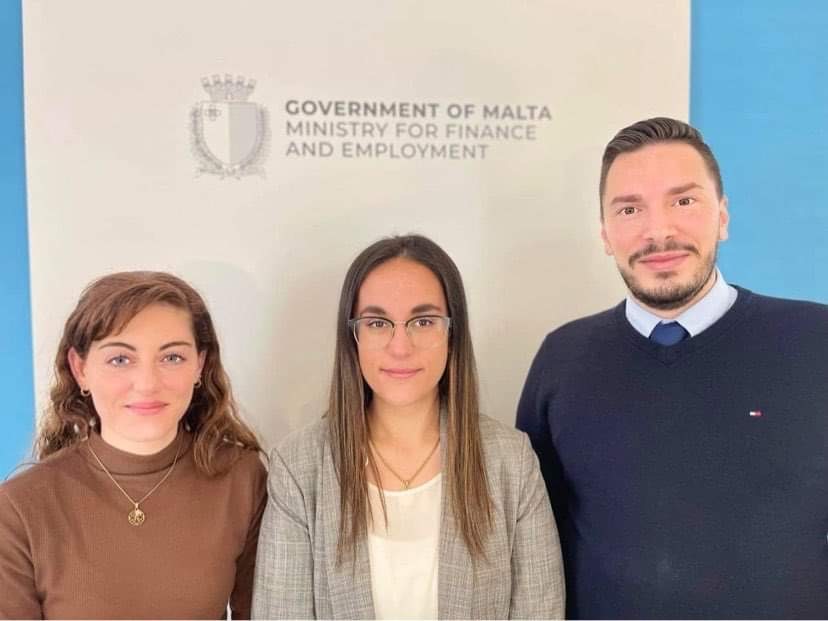Who’s who – the Maltese National Team

date: 24/03/2022
Tell us a bit about you - what is your background?
The Maltese National EUROMOD team is based at the Economic Policy Department (EPD) within the Ministry for Finance and Employment. The Department provides economic advice on matters relating to the formulation of economic policy, matters of structural economic relevance and Malta’s trade policy. The Department contributes to discussions on various aspects of the Maltese economy with international bodies and organisations, in particular through participation in meetings within the European Council and with the European Commission, the IMF and credit rating agencies on matters relating to trade policy, structural, fiscal and financial policy issues. In addition, the Department contributes to the national dimension of the European Semester, including through the drafting of the National Reform Programme and the Stability Programme. The EUROMOD team in Malta is composed of Stephanie Vella, Wayne Apap and Riana Said. All three member works in the Tax and Benefit Policy Analysis Directorate within the Department.
Stephanie Vella is a Senior Economics Officer who obtained a bachelor’s and a master’s degree in Economics at the University of Malta. She joined the Department in November 2017. Her area of interest is Labour and Welfare Economics with focus on social policy, in particular the analysis of how households and families are impacted in terms of redistribution and social and economic inequalities.
Wayne Apap is a Senior Economics Officer and has joined the Department in August 2012. He graduated in Banking and Finance & Statistics and Operations Research and is furthering his studies in Quantitative Finance at master’s level. His areas of interest include micro data analysis as well as macro simulation modelling, particularly DSGE models.
Riana Said is an Economics officer who also graduated with honours in Economics at the University of Malta. She joined the team in August 2020 and her area of interest relates to Taxation and Social Benefits. Together with work done on Euromod, she conducts data analysis and research relating to tax gaps and the changes in taxation policies.
As the National Team at EPD, EUROMOD is one of the main models that is used as an integral part of policymaking. The Department has been involved in the EUROMOD project since 2007. Since then, the Department’s involvement in this area has evolved and deepened and consequently, resources committed to EUROMOD have increased over time.
When and what was your first contact with EUROMOD?
All members came in contact with EUROMOD within the Department. Stephanie joined the EUROMOD team in 2018 after attending the EUROMOD course at the University of Essex in 2018. Wayne and Riana attended the EUROMOD course in 2020 and joined the team within the same year.
What are your main responsibilities and what is your experience with EUROMOD?
Stephanie‘s main responsibility is to manage the process of updating Malta’s EUROMOD model and together with the team, prepare the input data file whilst also ensuring that the tasks of the projects are completed in line with the agreed deadlines. Riana provides assistance in the updating of the model and is responsible for the yearly update of the Country Report. Wayne’s main responsibility is to provide guidance in terms of the modelling of specific measures, banking on his experience in the field of economic modelling.
Would you like to share any recent highlights for your country?
The Department is increasingly using EUROMOD for policy purposes, especially when evaluating the impact of policies and measures announced by Government in the Budget. The team is currently working on analysing the distributional impact of the reforms in the tax and benefit system that were announced in the 2022 Budget. On a regular basis, the Department presents simulations prepared in EUROMOD in the National Reform Programme submitted to the European Commission in Spring.
Other recent projects include:
- In 2021, internal research has been conducted on the impact of the pandemic on poverty and income distribution in Malta, particularly by modelling the impact of the wage supplement scheme and the rise in unemployment in 2020 and 2021 on households and individuals.
- The model was also used for research on the minimum wage, as well as for the simulation on of social benefits reforms, as part of an ongoing project focusing on rebalancing social protection in Malta that is being carried out with the assistance of the World Bank.
- In 2020, the Department published the impact of the increase in unemployment during COVID-19 on poverty in the National Strategic Policy for Poverty Reduction and Social Inclusion 2014 – 2024, which was prepared by the Ministry for Social Justice and Solidarity, the Family and Children’s Rights.
